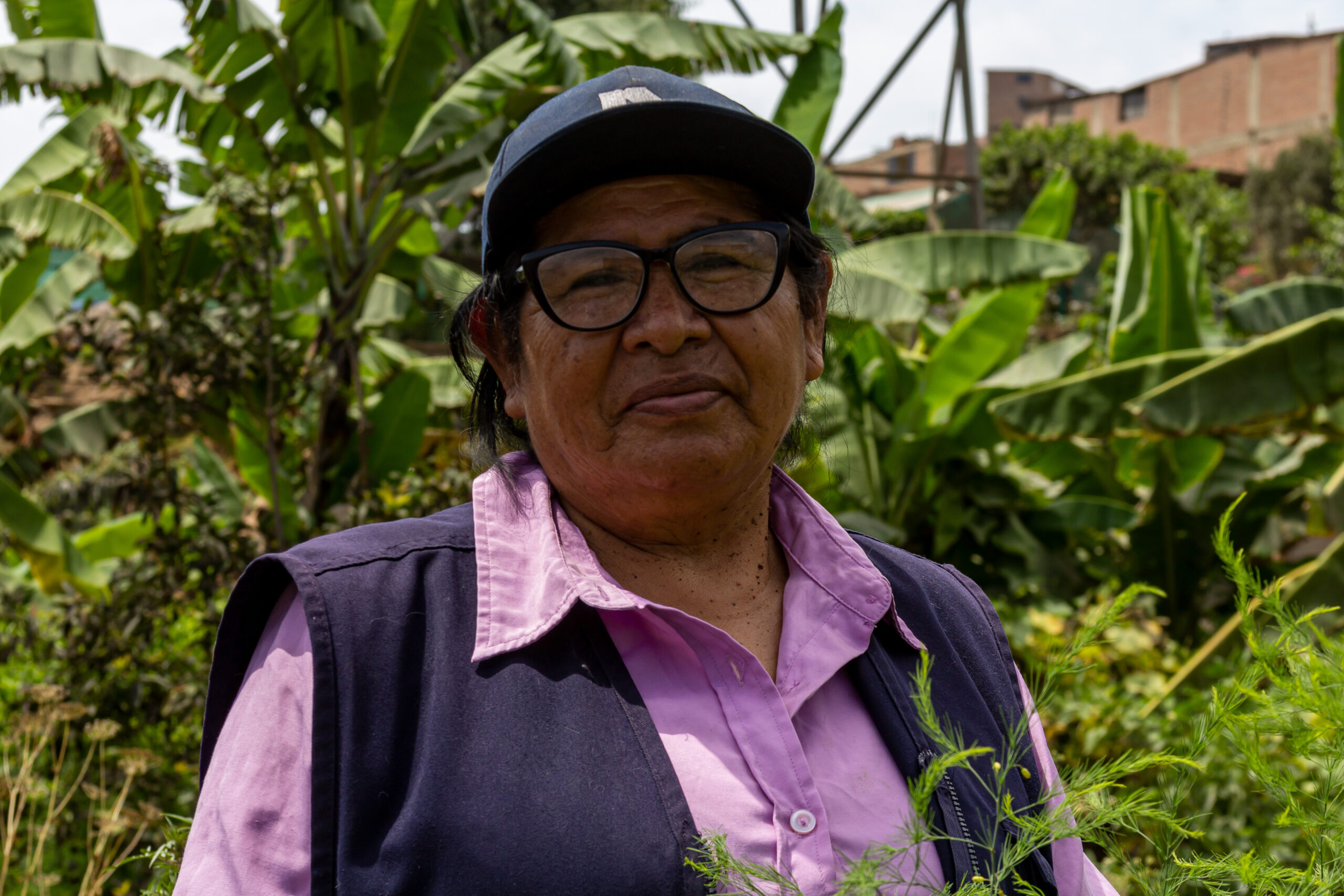Urban agriculture in Peru is creating communities committed to healthy living and a cleaner environment
Story

Looking at bountiful fruit orchards and vegetable gardens in the district of Villa Maria del Triunfo in Lima, Peru, Gregoria remembers when the same area was nothing but a wasteland of garbage and neglect.
Now, this area is generating crops for family cooking, giving women farmers a better chance at a healthy life for them and their children, while boosting the region’s environmental health.
Gregoria is part of the Cuso International-supported Mujeres Unidas por la Seguridad Alimentaria y Ambiental (MUSA)/Women United for Food and Environmental Security project that began in March 2022.
Supporting approximately 350 farmers – 40 of which train other farmers – across nine districts within the Lima area, Cuso International is working with several municipalities and local organizations that are focused on sustainable development and combatting climate change as well as the National Agrarian University La Molina.
Together, a team of specialists that includes Cuso International volunteers, provide valuable training in agriculture, food security, nutrition as well as promoting knowledge exchange among women.
The instruction and training are in-depth, covering important subjects such as irrigation, efficient harvesting and composting, access to local resources such as seeds, and environmentally safe pest control practices.
For farmers like Gregoria, the impact of MUSA is immeasurable.
“Now the community around here can breathe clean air,” she says. “We take care of the environment, there is no more garbage and no more flies. And the benefits for the families here is that this improves our quality of life because we are eating organic products.”
Gregoria is also heartened by the fact that the next generation are beginning to get involved and are keen on carrying on the tradition of growing organic foods and supporting a healthy environment.
“We would like our children to be involved here,” says Gregoria. “For each orchard we have reached an agreement with all the farmers ― for each orchard there must be three to four young people under 25 years of age. The young people are seeing what we’re doing and they’re looking to what they want to be in the future.”
For Victoria, a farmer in the Villa El Salvador district, the urban garden has created lasting community connections.
“The community garden has created a permanent space for learning and socialization and empowerment of women,” she says. “We learn how to sow and cultivate vegetables, free of chemicals and pesticides. We are very happy and satisfied with what we have achieved together.”
Victoria also uses the knowledge she has gained to support nearby families, helping them grow more robust home gardens in small urban spaces.
“And those who do not have gardens, they can even use recyclable containers,” she says. “Above all, families can produce their own vegetables in a healthy way.”
Lola, who is also farming in the Villa El Salvador district, loves seeing lush vegetation where there was once just dirt and pollution.
“The gardens become a green area in the city, and that was lacking in Villa El Salvador,” she says. “Above all, the most important thing, we’re learning to generate our own food.”
She feels empowered by taking part in the garden, knowing she is directly involved in addressing food insecurity, while combatting climate change. “What’s better than being able to create our own gardens and teach the other ladies so that they can also learn to cultivate family agriculture?” she says.
And the project has helped her change her perspective and thinking ― she now sees growing potential, no matter how small the area.
“These city gardens, community gardens and home gardens are a way to inspire people to learn that you don’t have to have a large plot of land,” says Lola. “Even with small recycling containers, you can have your garden at home.”
Witnessing the success of the garden, she is now looking toward a brighter future and is committed to seeing this project continue.
“The community itself and the ladies are going to make this project sustainable over time, because we all know how important it is,” she says.
Gregoria shares Lola’s appreciation of the rejuvenated gardens in her district.
“This place is the most beautiful green from May until October,” she says, adding that once the harvesting is complete in the fall, “the land is resting.”
But the work doesn’t stop. Between growing seasons, Gregoria and the other farmers are collaborating to create planting plans, and determine who will manage the different orchards.
Regardless of the season, Gregoria loves the knowledge exchange that takes place among the women farmers, and to neighbouring areas.
“We have really gotten to know people who did not know how to eat healthy and how to balance their food, and that is what has satisfied me the most,” she says.
“I thank Cuso International for this MUSA project. MUSA has taught us to take on the role of promoters of urban agriculture. Every day I learn more, and everything I learn, I share.”